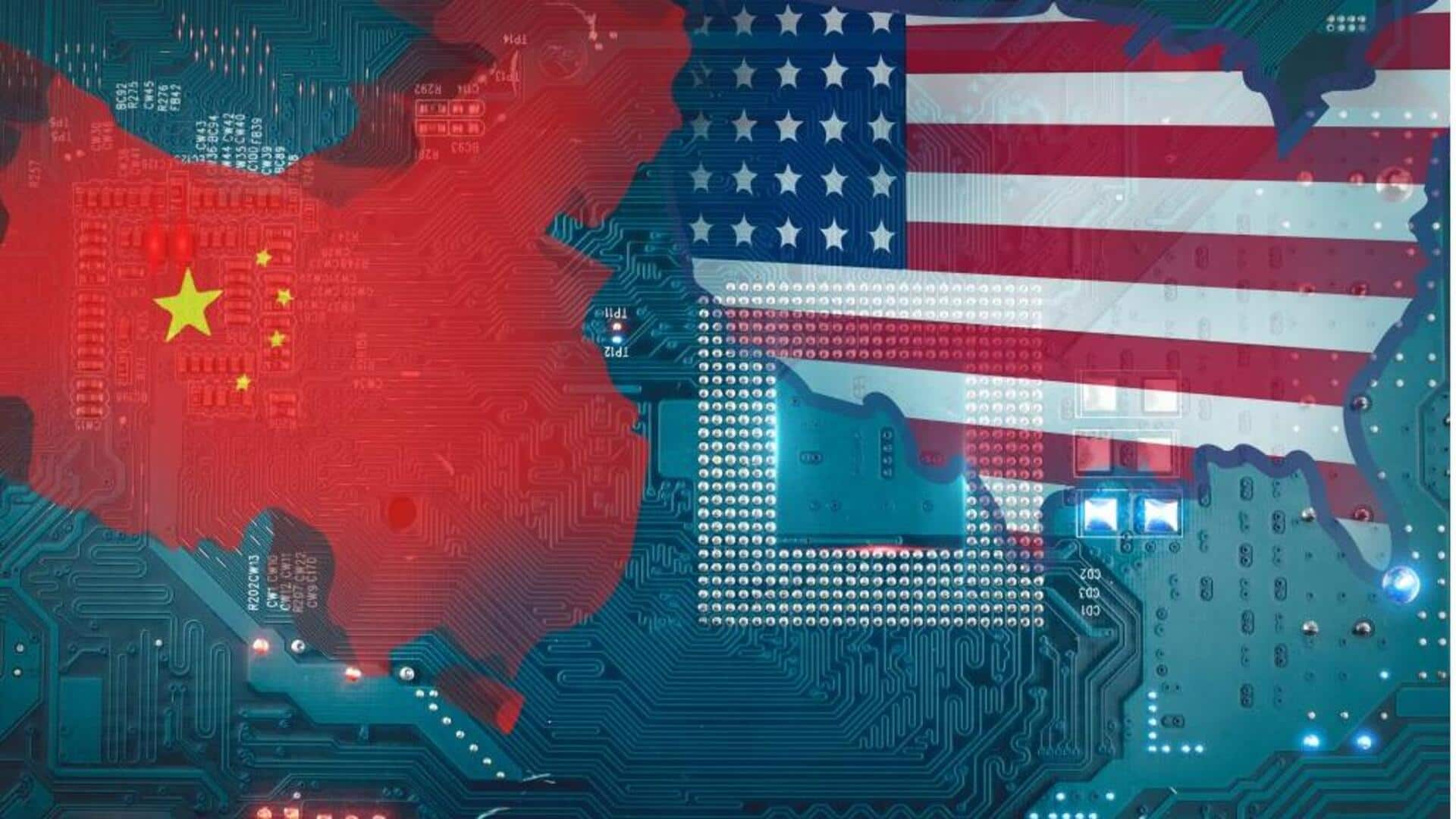
How China is bypassing US sanctions on AI chips
What's the story
China has been reportedly circumventing US sanctions on artificial intelligence (AI) chips by utilizing a network of smugglers and shell companies. Despite US's efforts to block powerful AI processing chips from reaching Chinese governments and military-linked firms, this covert network continues to flourish. The city of Shenzhen, a global electronics hardware manufacturing hub, is said to be the central point of these operations.
Trade hub
Shenzhen: The epicenter of AI chip trade
Vendors in Shenzhen's market are selling AI chips with delivery times within weeks. Large orders are commonplace, with companies often purchasing hundreds of chips simultaneously. Business owners are reportedly managing large shipments of thousands of NVIDIA chips. This thriving clandestine trade highlights a broader global effort to sidestep US restrictions amidst escalating military tensions between the two superpowers. The US has been attempting to control the export of these critical AI chips from companies like NVIDIA, AMD, and Intel.
Tech impact
AI chips: Key to advanced technologies and military applications
These AI chips play a crucial role in developing technologies such as self-driving cars, chatbots, and advanced medical research. However, they also have potential military applications including the development of cutting-edge weaponry and cyberwarfare capabilities. Despite the ban on exporting these chips to China and the inclusion of numerous Chinese companies to a national security threat list, trade continues due to immense profits.
Business strategy
Chinese executives establish new companies to bypass restrictions
Chinese executives have found innovative ways to circumvent US restrictions, including establishing new companies that have become major players in the AI server market. These firms are partnering with American tech giants like NVIDIA, Intel, AMD, and Microsoft. Meanwhile, an underground network of smugglers continues to channel AI chips into China using fraudulent shipping labels and backroom deals. The scale of this trade remains unclear but reported transactions suggest a significant black market.
Compliance claims
US companies claim compliance amidst distribution challenges
NVIDIA and other US companies assert that they have been fully compliant with export controls. However, they acknowledge the difficulties in controlling the entire distribution chain due to its complexity and vastness. The ongoing trade has raised concerns among US authorities and industry experts about the effectiveness of current restrictions. Despite sanctions, Chinese companies like Nettrix continue to partner with American tech firms, selling servers containing NVIDIA and Intel chips to organizations linked to China's defense sector.
Countermeasures
US toughens penalties, initiates strike force to tackle illegal procurement
In response to the ongoing trade, the US has toughened penalties and created initiatives like the Disruptive Technology Strike Force to tackle technology theft and illegal procurement networks. However, resource limitations and those seeking to bypass sanctions pose significant challenges. Reports indicate that US chips have contributed to advancements in Chinese missile programs and other military applications. Chinese universities and research institutions have been reportedly using NVIDIA, AMD, and Intel chips for studies related to nuclear weapons and missile technology.